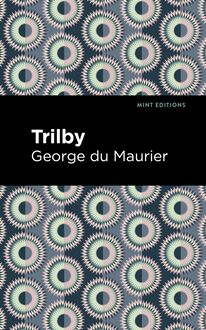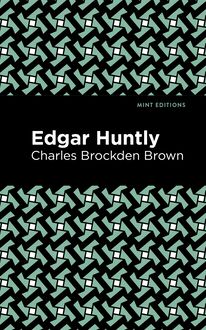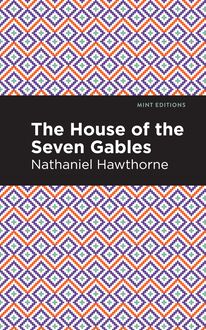-
 Univers
Univers
-
 Ebooks
Ebooks
-
 Livres audio
Livres audio
-
 Presse
Presse
-
 Podcasts
Podcasts
-
 BD
BD
-
 Documents
Documents
-
- Cours
- Révisions
- Ressources pédagogiques
- Sciences de l’éducation
- Manuels scolaires
- Langues
- Travaux de classe
- Annales de BEP
- Etudes supérieures
- Maternelle et primaire
- Fiches de lecture
- Orientation scolaire
- Méthodologie
- Corrigés de devoir
- Annales d’examens et concours
- Annales du bac
- Annales du brevet
- Rapports de stage
La lecture à portée de main
Vous pourrez modifier la taille du texte de cet ouvrage
Découvre YouScribe en t'inscrivant gratuitement
Je m'inscrisDécouvre YouScribe en t'inscrivant gratuitement
Je m'inscrisEn savoir plus
Vous pourrez modifier la taille du texte de cet ouvrage
En savoir plus

Description
Vathek (1786) is a novel by William Beckford. Inspired by his travels, Beckford wrote Vathek in French before supervising its translation into English by Reverend Samuel Henley. Recognized as an instrumental work in the popularization of Orientalist fiction, Vathek is an early Gothic novel that influenced such writers as Edgar Allan Poe, Lord Byron, Robert Southey, and H. P. Lovecraft. Born into a royal family, Vathek is appointed the ninth caliph of the Abassides as a boy. Spoiled and enabled at every turn, he grows to be an insufferably vain and vindictive ruler, unschooled in diplomacy and always quick to anger. When a deformed stranger arrives at his palace claiming to be a merchant from India, Vathek purchases a set of inscribed sabers. At dinner that night, the merchant insults the caliph with his silence and is sentenced to prison. The next morning, the merchant escapes, killing every guard in his path. As Vathek examines the glowing blades, he sees that the messages inscribed on them have changed—he has been cursed, and the only way to reverse his fate is to find the man he mistreated. Determined to remain his own master, he sets out for the mountain to clear his head, beginning a journey from which few return. Immersed in Islamic mythology, Vathek is a cautionary tale of power, faith, and desire that earned its author a reputation as a leading young artist with a gift for fantasy. With a beautifully designed cover and professionally typeset manuscript, this edition of William Beckford’s Vathek is a classic of British literature reimagined for modern readers.
Sujets
Informations
| Publié par | Mint Editions |
| Date de parution | 21 mai 2021 |
| Nombre de lectures | 0 |
| EAN13 | 9781513287805 |
| Langue | English |
| Poids de l'ouvrage | 2 Mo |
Informations légales : prix de location à la page 0,0350€. Cette information est donnée uniquement à titre indicatif conformément à la législation en vigueur.
Extrait
Vathek
William Beckford
Vathek was first published in 1782.
This edition published by Mint Editions 2021.
ISBN 9781513282787 | E-ISBN 9781513287805
Published by Mint Editions®
minteditionbooks .com
Publishing Director: Jennifer Newens
Design & Production: Rachel Lopez Metzger
Project Manager: Micaela Clark
Typesetting: Westchester Publishing Services
C ONTENTS B EGIN R EADING
Vathek, ninth Caliph of the race of the Abassides, was the son of Motassem, and the grandson of Haroun Al Raschid. From an early accession to the throne, and the talents he possessed to adorn it, his subjects were induced to expect that his reign would be long and happy. His figure was pleasing and majestic; but when he was angry, one of his eyes became so terrible that no person could bear to behold it; and the wretch upon whom it was fixed instantly fell backward, and sometimes expired. For fear, however, of depopulating his dominions, and making his palace desolate, he but rarely gave way to his anger.
Being much addicted to women, and the pleasures of the table, he sought by his affability to procure agreeable companions; and he succeeded the better, as his generosity was unbounded and his indulgences unrestrained; for he was by no means scrupulous: nor did he think, with the Caliph Omar Ben Abdalaziz, that it was necessary to make a hell of this world to enjoy Paradise in the next.
He surpassed in magnificence all his predecessors. The palace of Alkoremmi, which his father Motassem had erected on the hill of Pied Horses, and which commanded the whole city of Samarah, was in his idea far too scanty: he added, therefore, five wings, or rather other palaces, which he destined for the particular gratification of each of his senses.
In the first of these were tables continually covered with the most exquisite dainties, which were supplied both by night and by day according to their constant consumption; whilst the most delicious wines, and the choicest cordials, flowed forth from a hundred fountains, that were never exhausted. This palace was called “The Eternal, or Unsatiating Banquet.”
The second was styled “The Temple of Melody, or the Nectar of the Soul.” It was inhabited by the most skilful musicians and admired poets of the time, who not only displayed their talents within, but dispersing in bands without, caused every surrounding scene to reverberate their songs, which were continually varied in the most delightful succession.
The palace named “The Delight of the Eyes, or the Support of Memory,” was one entire enchantment. Rarities collected from every corner of the earth were there found in such profusion as to dazzle and confound, but for the order in which they were arranged. One gallery exhibited the pictures of the celebrated Mani; and statues that seemed to be alive. Here a well-managed perspective attracted the sight; there, the magic of optics agreeably deceived it; whilst the naturalist, on his part, exhibited in their several classes the various gifts that heaven had bestowed on our globe. In a word, Vathek omitted nothing in this particular that might gratify the curiosity of those who resorted to it, although he was not able to satisfy his own; for he was, of all men, the most curious.
“The Palace of Perfumes,” which was termed likewise, “The Incentive to Pleasure,” consisted of various halls, where the different perfumes which the earth produces were kept perpetually burning in censers of gold. Flambeaus and aromatic lamps were here lighted in open day; but the too powerful effects of this agreeable delirium might be avoided by descending into an immense garden, where an assemblage of every fragrant flower diffused through the air the purest odours.
The fifth palace, denominated “The Retreat of Joy, or the Dangerous,” was frequented by troops of young females, beautiful as the Houris, and not less seducing, who never failed to receive with caresses all whom the Caliph allowed to approach them; for he was by no means disposed to be jealous, as his own women were secluded within the palace he inhabited himself.
Notwithstanding the sensuality in which Vathek indulged, he experienced no abatement in the love of his people, who thought that a sovereign immersed in pleasure was not less tolerable to his subjects than one that employed himself in creating them foes. But the unquiet and impetuous disposition of the Caliph would not allow him to rest there: he had studied so much for his amusement in the life-time of his father as to acquire a great deal of knowledge, though not a sufficiency to satisfy himself; for he wished to know everything; even sciences that did not exist. He was fond of engaging in disputes with the learned, but liked them not to push their opposition with warmth. He stopped the mouths of those with presents, whose mouths could be stopped; whilst others, whom his liberality was unable to subdue, he sent to prison to cool their blood; a remedy that often succeeded.
Vathek discovered also a predilection for theological controversy; but it was not with the orthodox that he usually held. By this means he induced the zealots to oppose him, and then persecuted them in return; for he resolved, at any rate, to have reason on his side.
The great prophet Mahomet, whose vicars the Caliphs are, beheld with indignation from his abode in the seventh heaven the irreligious conduct of such a vicegerent.
“Let us leave him to himself,” said he to the Genii, who are always ready to receive his commands; “let us see to what lengths his folly and impiety will carry him; if he run into excess we shall know how to chastise him. Assist him, therefore, to complete the tower which, in imitation of Nimrod, he hath begun; not, like that great warrior, to escape being drowned, but from the insolent curiosity of penetrating the secrets of heaven: he will not divine the fate that awaits him.”
The Genii obeyed; and when the workmen had raised their structure a cubit in the day time, two cubits more were added in the night. The expedition with which the fabric arose was not a little flattering to the vanity of Vathek. He fancied that even insensible matter showed forwardness to subserve his designs; not considering that the successes of the foolish and wicked form the first rod of their chastisement.
His pride arrived at its height when, having ascended, for the first time, the eleven thousand stairs of his tower, he cast his eyes below and beheld men not larger than pismires; mountains than shells; and cities than bee-hives. The idea which such an elevation inspired of his own grandeur completely bewildered him; he was almost ready to adore himself; till lifting his eyes upwards, he saw the stars as high above him as they appeared when he stood on the surface of the earth. He consoled himself, however, for this transient perception of his littleness with the thought of being great in the eyes of the others, and flattered himself that the light of his mind would extend beyond the reach of his sight, and transfer to the stars the decrees of his destiny.
With this view the inquisitive prince passed most of his nights on the summit of his tower, till he became an adept in the mysteries of astrology, and imagined that the planets had disclosed to him the most marvellous adventures, which were to be accomplished by an extraordinary personage, from a country altogether unknown. Prompted by motives of curiosity, he had always been courteous to strangers; but from this instant he redoubled his attention, and ordered it to be announced by sound of trumpet, through all the streets of Samarah, that no one of his subjects, on peril of his displeasure, should either lodge or detain a traveller, but forthwith bring him to the palace.
Not long after this proclamation, there arrived in his metropolis, a man so hideous that the very guards who arrested him were forced to shut their eyes as they led him along. The Caliph himself appeared startled at so horrible a visage; but joy succeeded to this emotion of terror when the stranger displayed to his view such rarities as he had never before seen, and of which he had no conception.
In reality, nothing was ever so extraordinary as the merchandise this stranger produced. Most of his curiosities, which were not less admirable for their workmanship than their splendour, had besides, their several virtues described on a parchment fastened to each. There were slippers which enabled the feet to walk; knives that cut without the motion of a hand; sabres which dealt the blow at the person they were wished to strike; and the whole enriched with gems that were hitherto unknown.
The sabres, whose blades emitted a dazzling radiance, fixed more than all the Caliph’s attention, who promised himself to decipher at his leisure the uncouth characters engraven on their sides. Without, therefore, demanding their price, he ordered all the coined gold to be brought from his treasury, and commanded the merchant to take what he pleased. The stranger complied with modesty and silence.
Vathek, imagining that the merchant’s taciturnity was occasioned by the awe which his presence inspired, encouraged him to advance, and asked him, with an air of condescension, “Who he was? whence he came? and where he obtained such beautiful commodities?”
The man, or rather monster, instead of making a reply, thrice rubbed his forehead, which, as well as his body, was blacker than ebony; four times clapped his paunch, the projection of which was enormous; opened wide his huge eyes, which glowed like firebrands; began to laugh with a hideous noise, and discovered his long amber coloured teeth bestreaked with green.
The Caliph, though a little startled, renewed his enquiries, but without being able to procure a reply. At which, beginning to be ruffled, he exclaimed, “knowest thou, varlet, who I am? and at whom thou art aiming thy gibes?” Then addressing his guards, “have ye heard him speak? is he d
-
 Univers
Univers
-
 Ebooks
Ebooks
-
 Livres audio
Livres audio
-
 Presse
Presse
-
 Podcasts
Podcasts
-
 BD
BD
-
 Documents
Documents
-
Jeunesse
-
Littérature
-
Ressources professionnelles
-
Santé et bien-être
-
Savoirs
-
Education
-
Loisirs et hobbies
-
Art, musique et cinéma
-
Actualité et débat de société
-
Jeunesse
-
Littérature
-
Ressources professionnelles
-
Santé et bien-être
-
Savoirs
-
Education
-
Loisirs et hobbies
-
Art, musique et cinéma
-
Actualité et débat de société
-
Actualités
-
Lifestyle
-
Presse jeunesse
-
Presse professionnelle
-
Pratique
-
Presse sportive
-
Presse internationale
-
Culture & Médias
-
Action et Aventures
-
Science-fiction et Fantasy
-
Société
-
Jeunesse
-
Littérature
-
Ressources professionnelles
-
Santé et bien-être
-
Savoirs
-
Education
-
Loisirs et hobbies
-
Art, musique et cinéma
-
Actualité et débat de société
- Cours
- Révisions
- Ressources pédagogiques
- Sciences de l’éducation
- Manuels scolaires
- Langues
- Travaux de classe
- Annales de BEP
- Etudes supérieures
- Maternelle et primaire
- Fiches de lecture
- Orientation scolaire
- Méthodologie
- Corrigés de devoir
- Annales d’examens et concours
- Annales du bac
- Annales du brevet
- Rapports de stage




















